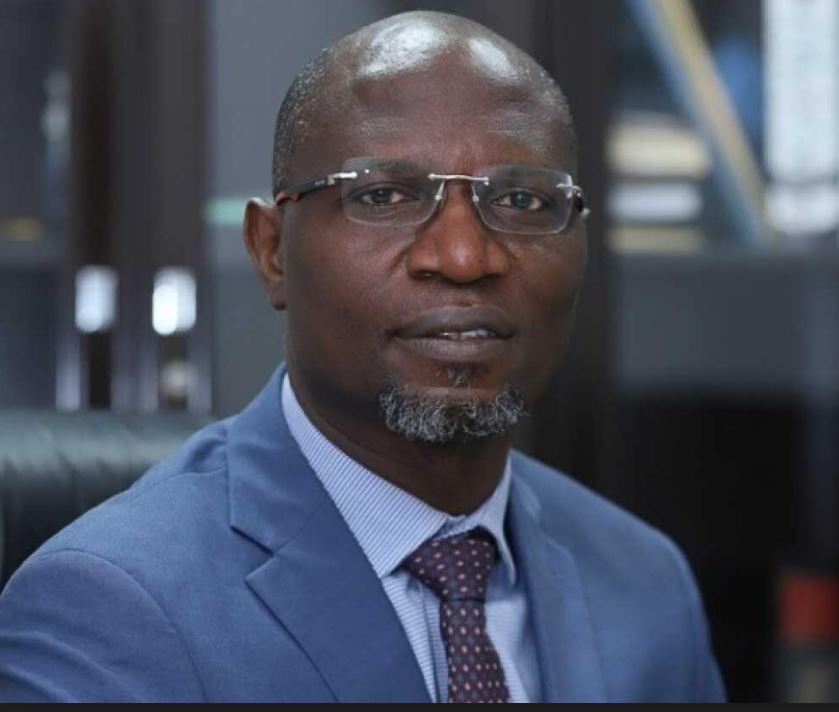611
Daniel Adaji
The Director-General of the Securities and Exchange Commission (SEC), Dr. Emomotimi Agama, has described digital assets as “a structural pillar of modern finance”.
He emphasised that they have moved beyond experimentation to become a defining feature of today’s global financial system.
Speaking at the Abuja Journalists Academy on Thursday, Agama said the digital revolution has fundamentally transformed how people communicate, transact, and create value, reshaping the architecture of finance itself.
“Over the past half-century, the digital revolution has redefined how we communicate, transact, and create value. From the internet of the 1990s to today’s blockchain-based economies, the digital age has not merely changed the medium of finance, it has reinvented its very architecture,” he stated.
He explained that digital assets now encompass a broad ecosystem beyond cryptocurrencies and non-fungible tokens (NFTs).
“They represent an expanding ecosystem that includes cryptocurrencies such as Bitcoin and Ethereum, tokenized real-world assets, decentralized finance (DeFi), and central bank digital currencies (CBDCs),” he said.
According to him, these innovations are transforming finance across four dimensions — infrastructure, asset classes, intermediation, and access adding that “the data speaks for itself- digital assets are no longer a fringe experiment; they are a structural pillar of modern finance.”
Agama noted that Nigeria remains at the forefront of digital finance evolution, ranking among the world’s top adopters of digital assets.
“We are among the world’s top adopters of digital assets, with more than one-third of our population participating in crypto-related activity. This reflects the creativity of our young people, our deep mobile connectivity, and the hunger for inclusion,” he said.
However, the SEC DG warned that the rapid adoption of digital assets has also created opportunities for exploitation, citing the rise in scams, phishing attacks, fake wallet applications, and ransomware schemes targeting unsuspecting Nigerians.
“These threats underscore an urgent truth: without robust regulation, innovation can quickly become vulnerability,” he stated.
Agama stressed that regulation is not meant to stifle innovation but to build trust and protect investors. “Regulation is not about restriction; it is about building trust ensuring that innovation serves progress, not predation,” he stated.
Highlighting global trends, he referenced the Financial Action Task Force (FATF) Recommendation 15, the European Union’s MiCA framework, and U.S. enforcement measures, noting that these initiatives demonstrate a worldwide commitment to transparency and accountability in digital finance.
“The global message is clear: digital finance demands the same transparency, accountability, and investor protection expected of traditional markets,” he said.
He recalled that in 2022, the SEC issued Rules on the Issuance, Offering, and Custody of Digital Assets to regulate virtual asset service providers (VASPs) in Nigeria. “These rules rest on three pillars: licensing, compliance, and transparency,” he said.
Under the framework, all VASPs operating in Nigeria are required to register and obtain SEC approval, meet anti-money laundering and counter-terrorism financing obligations, and maintain real-time transaction monitoring systems.
To enhance enforcement, the Commission collaborates with the Central Bank of Nigeria (CBN) and the Economic and Financial Crimes Commission (EFCC) to freeze illicit digital wallets and recover criminal proceeds.
Agama added that SEC has embraced technological supervision through partnerships with blockchain analytics firms to trace transactions, detect fraud, and strengthen cybersecurity.
He acknowledged that regulatory challenges persist, including jurisdictional conflicts, regulatory arbitrage, and capacity constraints. Nonetheless, he expressed optimism that these hurdles can be overcome with collaboration and technology.
“With collaboration and technological sophistication, we can stay ahead of evolving risks,” he said, pointing to blockchain analytics, artificial intelligence, and quantum-resistant cryptography as tools to strengthen oversight.
The SEC boss reaffirmed SEC’s commitment to developing a balanced regulatory environment that fosters innovation while safeguarding market integrity.
“Virtual assets hold immense potential to expand inclusion, mobilize investment, and position Nigeria as a continental leader in digital finance. But innovation must never outpace integrity,” he said.
“At the Securities and Exchange Commission, we remain steadfast in advancing a forward-looking, principles-based regulatory framework that balances innovation with investor protection. Because in this new frontier of finance, trust is the ultimate currency and as regulators, our highest duty is to preserve it,” he said.



